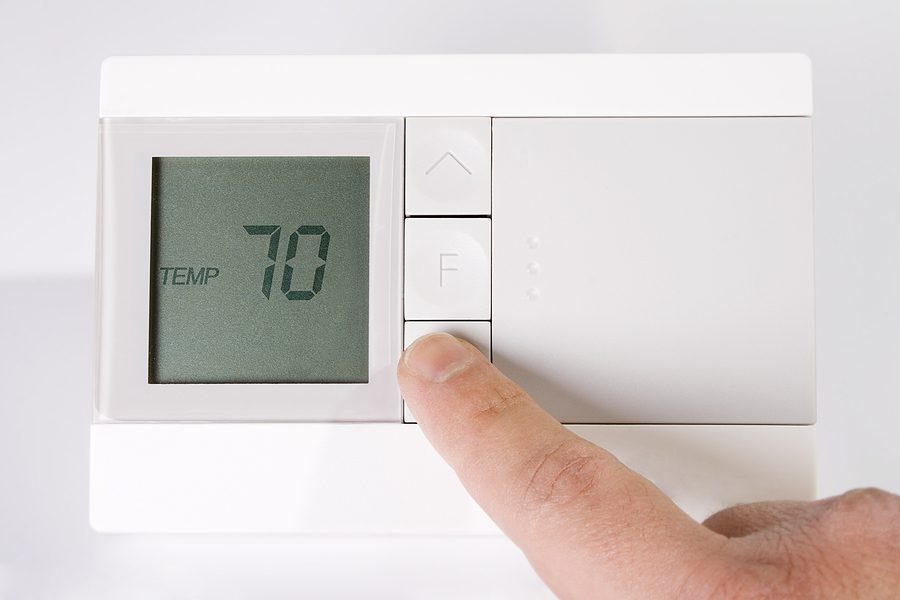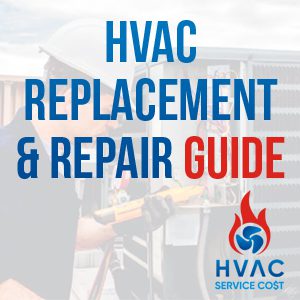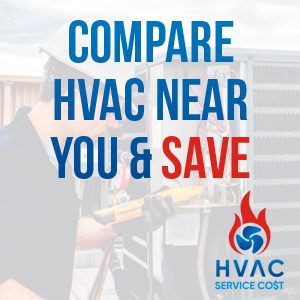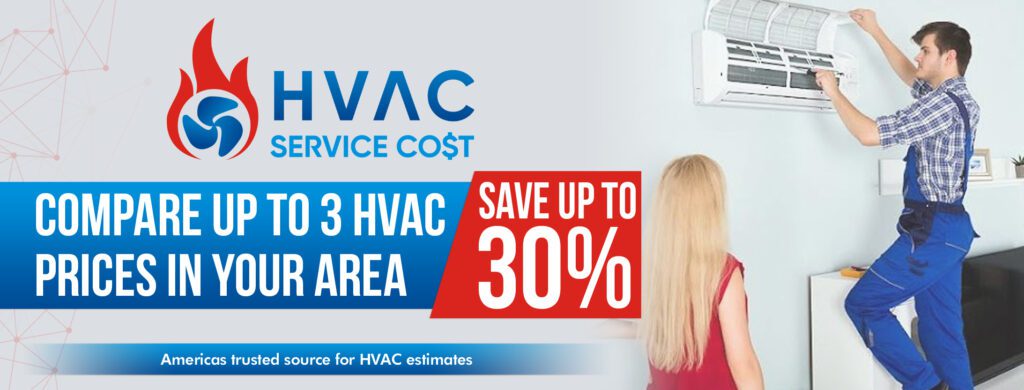
Why Are HVAC Companies So Expensive? Unraveling the Costs
HVAC (Heating, Ventilation, and Air Conditioning) services are essential for maintaining a comfortable living and working environment. However, you may have noticed that these services can be quite costly and wondered why. This article aims to demystify the expenses associated with HVAC services and help you understand why the costs might be higher than expected.
COMPARE QUOTES NOWExtensive Training and Expertise
HVAC technicians undergo significant education, training, and certification to become proficient in their field. They must understand complex HVAC systems, learn about various models and brands, know local building codes, and receive certification to handle refrigerants safely.
Technicians also need to stay updated with the advancements in technology and industry standards. They attend workshops, seminars, and training sessions regularly to ensure they provide the best and safest service possible. This continuous education is factored into the cost of their services.
Labor Costs
The HVAC industry is labor-intensive. Tasks such as inspecting, repairing, or installing HVAC systems can take several hours or even days. Labor costs often include the time taken to travel to the job site, the diagnosis of issues, the physical work, and any follow-up needed.
High-Quality Equipment
HVAC companies invest in high-quality, specialized tools and equipment to diagnose, repair, and install HVAC systems. These tools can be quite costly, but they are essential for technicians to complete their work efficiently and effectively.
Overhead Expenses
Like any business, HVAC companies have overhead costs, including insurance, vehicle maintenance, rent, utilities, administrative staff salaries, and marketing. All these contribute to the price you pay for their services.
Emergency Services
HVAC problems often occur at the most inconvenient times, requiring emergency services. Because technicians are available around the clock, companies may charge extra for calls made outside regular business hours.

Value-Added Services
Many HVAC companies offer value-added services like warranties, guarantees, or maintenance contracts. While these extras may increase the upfront cost, they offer long-term benefits like priority service, free repairs, and regular check-ups.
Safety Measures
Safety is paramount in the HVAC industry. Companies need to adhere to safety regulations and protocols to protect both their employees and clients. They invest in safety training, protective gear, and insurance, which are factored into the service costs.
While HVAC services can be costly, they’re necessary for maintaining the comfort and safety of your home or business. It’s essential to remember that while you may be able to find cheaper services, they may not provide the same level of expertise, quality, and safety that established companies offer. When it comes to HVAC systems, an investment in professional services can save you time, money, and headaches in the long run.
COMPARE QUOTES NOWUnderstanding the Breakdown of HVAC Services Costs
Knowing the specifics of what you’re paying for can help you understand why HVAC services can seem costly. Here are some additional factors that contribute to the overall cost of HVAC services:
Diagnostic Fee
HVAC companies typically charge a diagnostic fee to identify the problem with your system. This fee covers the technician’s time, expertise, and the use of specialized tools needed to accurately diagnose the issue. The diagnostic process is critical to solving your HVAC problems efficiently and effectively.
Repair Costs
Once the problem has been diagnosed, the cost of HVAC repairs will depend on the complexity of the issue and the components required. Simple repairs, such as fixing a thermostat or replacing a fuse, might be relatively inexpensive. However, more complex repairs, such as replacing a compressor or coil, can be more costly due to the price of the parts and the labor involved.
Installation Costs
Installing a new HVAC system is a significant investment. The cost includes the price of the unit itself, which can vary greatly depending on its size, brand, and features. The installation process also requires significant labor and expertise to ensure the system is installed correctly and safely. Additionally, the cost might include modifying ductwork or electrical systems to accommodate the new unit.

Maintenance Costs
Regular maintenance of your HVAC system is crucial to keep it running efficiently and to prolong its lifespan. Maintenance costs usually include cleaning and checking the system, replacing filters, and identifying potential problems. Some companies offer maintenance packages, which can be a cost-effective way to ensure regular check-ups of your system.
Regional Factors
Where you live can also impact the cost of HVAC services. Companies in areas with high living costs may charge more. Additionally, extreme climates might require more frequent service or more complex HVAC systems, which could also increase costs.
Despite the significant costs associated with HVAC services, it’s crucial to remember the value these services provide. HVAC systems keep your home comfortable year-round, protect the health of your family by ensuring good indoor air quality, and can even save you money by making your home more energy-efficient. Investing in high-quality HVAC services is investing in the comfort, health, and efficiency of your home.
COMPARE QUOTES NOWThe Average Cost of HVAC Services: A Pricing Breakdown
Here are some average costs associated with common HVAC services. These prices can vary widely depending on the specifics of the job and your location, but this will give you a general idea:
- Diagnostic Fee: This fee covers the initial visit to diagnose a problem with your HVAC system. It typically ranges from $75 to $200.
- HVAC Repair Costs: Depending on the issue, HVAC repair costs can range widely. For instance, a simple thermostat replacement may cost around $100 to $300, while more complex repairs like replacing a compressor can range from $1,350 to $2,300.
- HVAC Installation Costs: The cost of a new HVAC system, including installation, can range from $5,000 to $10,000, depending on the size, brand, and complexity of the system.
- HVAC Maintenance Costs: A regular maintenance visit can cost anywhere from $70 to $200. However, some companies offer annual maintenance plans that can reduce the cost of individual visits and include other benefits like priority service.
- Duct Cleaning: Cleaning the ductwork in your HVAC system can improve air quality and system efficiency. This service usually costs between $300 and $500.
- Air Conditioner Tune-Up: A yearly tune-up for your air conditioner to ensure it’s ready for the summer months can cost between $75 and $200.
- Furnace Tune-Up: Similarly, a tune-up for your furnace to prepare for the winter can cost between $100 and $200.

Remember, these are just averages, and the actual cost can vary depending on various factors, including the specific issue, the cost of parts, the complexity of the work, and your location. Always ask for a detailed estimate before the work begins so you understand exactly what you’re paying for.
COMPARE QUOTES NOWEvaluating Major HVAC Components and Their Impact on Costs
Let’s delve into the costs associated with some specific components of an HVAC system and how they affect your energy bills and overall HVAC expenses.
Central Air Conditioner
A central air conditioning unit is a significant part of your HVAC system. The cost of a new central AC unit can range from $2,500 to $7,500, including installation. This price can vary depending on the unit’s capacity, brand, and efficiency rating, known as the Seasonal Energy Efficiency Ratio (SEER). Higher SEER ratings typically come with higher upfront costs but can lead to lower energy bills over the unit’s lifespan.
Air Handler
The air handler is a critical part of your HVAC system that circulates conditioned air throughout your home. A new air handler can cost between $2,000 and $3,500, including installation. The cost can increase if your system requires modifications to accommodate the new air handler.
New Ductwork
If your home needs new ductwork, this can be a significant expense. The cost for ductwork can range from $1,000 to $5,000 or more, depending on the size of your home and the complexity of the installation. However, well-designed, properly installed ductwork can improve the efficiency of your HVAC system, potentially reducing your energy bills.
AC Units and Cooling Systems
Individual AC units or specialized cooling systems, like mini-split AC systems, offer an alternative to central air conditioning. These systems can be more affordable, with costs ranging from $300 to $1,500 per unit, not including installation. They can be a cost-effective solution for cooling specific areas of your home without the need to cool the entire house.
Choosing the right HVAC contractor can make a significant difference in these costs. A knowledgeable contractor can advise you on the most efficient and cost-effective solutions for your home, potentially saving you money on installation and energy costs in the long run. Always ensure your chosen HVAC professional is licensed, insured, and has a strong reputation for quality service.

Top Tips to Reduce HVAC Costs
Reducing the costs associated with your HVAC system is not only possible but can also lead to more efficient performance and longer system life. Here are some practical tips to help you save on your HVAC costs:
- Regular Maintenance: Scheduling regular maintenance can prevent small problems from becoming major, costly repairs. It also keeps your system running efficiently, which can lower your energy bills.
- Invest in a Programmable Thermostat: A programmable thermostat allows you to control your home’s temperature more effectively, reducing energy consumption when you’re away from home or asleep.
- Insulate Your Home Properly: Good insulation can significantly reduce your heating and cooling costs by keeping conditioned air inside your home.
- Upgrade to Energy-Efficient Units: If your HVAC system is old, consider upgrading to an energy-efficient model. While the upfront cost may be higher, the energy savings over time can offset the initial investment.
- Install Energy-Efficient Windows and Doors: Energy-efficient windows and doors can prevent heat transfer, reducing the load on your HVAC system.
- Use Ceiling Fans: Ceiling fans can help circulate air, allowing you to raise the thermostat in summer and lower it in winter, reducing the workload on your HVAC system.
- Keep Vents Clear: Make sure your vents aren’t blocked by furniture, carpets, or curtains. Blocked vents make your HVAC system work harder, increasing energy consumption.
- Change Filters Regularly: Dirty filters restrict airflow, making your HVAC system work harder and consume more energy. Replace or clean filters regularly to improve efficiency and reduce costs.
Remember, investing in your HVAC system is an investment in your home’s comfort and value. While these strategies can help reduce costs, it’s essential not to cut corners where quality and safety are concerned. Always consult with a professional HVAC contractor for best results.
COMPARE QUOTES NOWConsidering Specific HVAC Systems and Associated Costs
There are a variety of HVAC systems available, each with its own set of considerations and potential costs. The type of HVAC system suitable for your home can depend on a range of factors, including the size of your home, the climate in your area, and your specific heating and cooling needs. Here are a few things to consider:
Gas Furnace
If you’re in a colder climate, a gas furnace can be a cost-effective and efficient way to heat your home. Natural gas furnaces tend to have lower operational costs compared to electric furnaces, mainly because natural gas is generally less expensive than electricity. However, the initial cost of installing a natural gas furnace, especially if your home doesn’t already have a gas line, can be higher. A new gas furnace, including installation, can cost between $2,500 and $5,000 on average.

Natural Gas
Natural gas HVAC systems are popular in older homes and urban areas where gas lines are already in place. They are known for their efficiency and relatively low operational costs. However, the cost to install a new gas line can be significant if your home isn’t already equipped with one.
Size of the Unit
The size of the HVAC unit you need depends on the size and layout of your home. A unit that’s too small won’t adequately heat or cool your home, leading to discomfort and higher energy bills. A unit that’s too large will cycle on and off more frequently, which can cause wear and tear on the system and decrease its lifespan. A professional HVAC contractor can conduct a load calculation to determine the right size unit for your home.
Additional Costs
There can be additional costs associated with certain types of HVAC systems. For example, some systems may require ductwork modifications or new thermostat installation. If you’re switching from an electric system to a gas system, you may need to install a new gas line. Make sure to ask your HVAC contractor about any potential additional costs before you decide on a particular type of HVAC system.
COMPARE QUOTES NOWIt’s crucial to consider all potential costs and factors when choosing an HVAC system for your home. A professional HVAC contractor can provide valuable guidance and help you make the best choice for your specific needs and budget.
Evaluating the Cost-Effectiveness of HVAC Services
While the upfront costs of HVAC services may seem high, it’s important to take a broader look at the value these services provide over time. Evaluating the cost-effectiveness of HVAC services involves considering the long-term savings, the comfort of your home, and even potential increases in property value.
Long-Term Savings
Energy-efficient HVAC systems may cost more upfront but they can save significant money in the long term. By consuming less energy to heat or cool your home, these systems can reduce your monthly utility bills. Additionally, energy-efficient systems often come with longer warranties and require fewer repairs over their lifespan, leading to further savings.
Home Comfort
A well-functioning HVAC system doesn’t just save money, it also makes your home more comfortable. Proper heating, cooling, and ventilation can improve indoor air quality, regulate humidity, and maintain a consistent temperature in all rooms. The value of these comforts, while harder to quantify, is a significant part of the overall worth of professional HVAC services.
Property Value
Upgrading to a high-quality HVAC system can increase the value of your home. Prospective home buyers often look for homes with energy-efficient, reliable heating and cooling systems. Therefore, investing in a new HVAC system can make your property more attractive on the real estate market.
Preventive Maintenance
Paying for regular maintenance can also be a cost-effective strategy. Preventive maintenance helps catch small issues before they become major, expensive repairs. It also keeps your system running efficiently, saving you money on energy costs.

While the costs associated with professional HVAC services can seem expensive at first glance, a closer look reveals their true value. By ensuring long-term savings, enhancing home comfort, and potentially increasing property value, these services are a wise investment for any homeowner.
COMPARE QUOTES NOWBalancing Costs and Benefits with HVAC Systems
Balancing the initial costs with the long-term benefits of different HVAC options is key to making the most cost-effective decision for your home. Here’s how the various aspects can impact your overall HVAC system cost:
Type of System
The type of HVAC system you choose can significantly impact the overall cost. For example, a central air conditioning system may cost more upfront than individual window units, but it can provide more effective and efficient cooling in the long run. Similarly, a heat pump might have higher initial costs compared to a traditional furnace, but it can provide both heating and cooling, potentially saving you money over time.
HVAC Equipment
The quality and efficiency of the HVAC equipment you choose can also affect costs. Higher-end models may cost more upfront but often offer better efficiency, durability, and features, which can lead to cost savings in the long term. For instance, units with higher SEER (Seasonal Energy Efficiency Ratio) ratings are more energy-efficient, which can lead to lower energy bills.
HVAC Repairs
The cost of potential HVAC repairs should also be considered. While it’s impossible to predict exactly what repairs your system might need in the future, choosing a system known for its reliability and durability can help minimize repair costs. Regular maintenance can also prevent small issues from becoming costly repairs.
Tax Credits
Investing in an energy-efficient HVAC system might qualify you for tax credits. For example, the U.S. federal government offers a tax credit for homeowners who install energy-efficient heating and cooling equipment in their homes. These credits can offset a portion of the cost of the system, making it more affordable.
HVAC Professionals
Finally, the HVAC professionals you choose to install and maintain your system can have a significant impact on costs. A qualified, experienced professional can ensure your system is installed correctly, operates efficiently, and is well-maintained, which can prevent costly issues down the line.
While the upfront costs of HVAC services can be significant, it’s essential to consider the long-term savings and benefits as well. By carefully considering the type of system, the equipment, potential repairs, tax credits, and the professionals you hire, you can ensure you’re making the most cost-effective choice for your home.

Understanding SEER Ratings and Their Impact on Long-Term HVAC Costs
When it comes to HVAC systems, one of the most important factors to consider for long-term savings is the SEER (Seasonal Energy Efficiency Ratio) rating.
COMPARE QUOTES NOWWhat are SEER Ratings?
SEER ratings measure the cooling efficiency of air conditioners and heat pumps. The higher the SEER rating, the more energy-efficient the unit is. This rating is calculated by dividing the cooling output during a typical cooling season by the total electric energy input during the same period.
SEER Ratings and Cost Savings
Investing in a new HVAC unit with a higher SEER rating can lead to significant energy savings over the life of the unit. A higher SEER rating means the unit uses less energy to cool your home, which translates to lower energy bills.
For instance, upgrading from an older unit with a SEER rating of 10 to a new unit with a SEER rating of 16 can reduce your cooling costs by about 37.5%. While the initial cost of a high SEER HVAC unit might be higher than a less efficient unit, the long-term energy cost savings can offset the initial investment.
Heating System and SEER Ratings
While SEER ratings primarily measure cooling efficiency, they can still impact the cost and efficiency of your heating system if you use a heat pump. Heat pumps both heat and cool homes by transferring heat energy between the indoors and outdoors. A heat pump with a higher SEER rating will be more efficient at cooling, and likely heating as well, reducing your overall HVAC energy costs.
Considering the SEER rating when purchasing a new HVAC unit can help you make a more cost-effective decision. While higher SEER units can have a higher upfront cost, the potential savings on your energy bills over the life of the unit make them a smart investment for long-term savings. As always, it’s advisable to consult with HVAC professionals when choosing a new HVAC system for your home. They can provide insights tailored to your specific needs, home characteristics, and local climate.
COMPARE QUOTES NOW


Leave a Reply